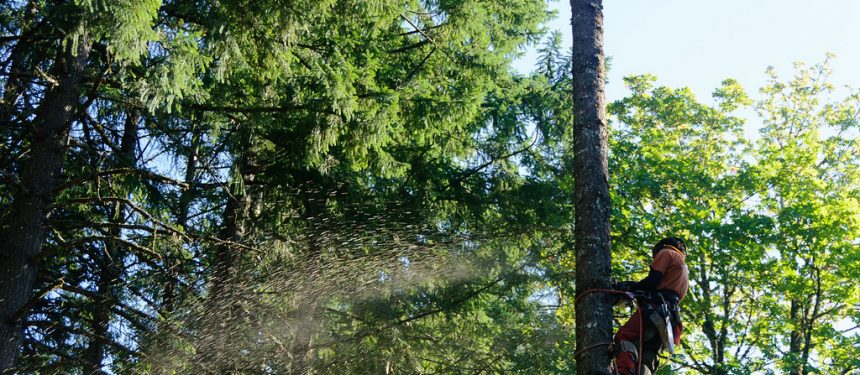The New Zealand government has backed away from some of its more stringent migrant visa changes after confirming its essential skills work visa policies, aiming for “the right balance” between ensuring jobs for nationals and benefiting from migrant labour skills.
News and business analysis for Professionals in International Education
Have some pie!
NZ eases upcoming migrant visa changes
 The government has created a new category, the mid-skilled migrant, to fill New Zealand's skills shortages in industries like forestry. International students will continue to have access to post-study work rights. Photo: Flickr/Matt Boman
The government has created a new category, the mid-skilled migrant, to fill New Zealand's skills shortages in industries like forestry. International students will continue to have access to post-study work rights. Photo: Flickr/Matt Boman The amended visa changes, which follows an announcement earlier this year to prioritise “Kiwis first” through minimum income thresholds, will now see the classification of low- to high-skill workers determined by their remuneration level, rather than their area of expertise.
“The government is committed to striking the right balance between ensuring New Zealanders are at the front of the queue for jobs and making sure our regions have access to temporary migrant labour necessary for sustained economic growth,” immigration minister Michael Woodhouse said in a statement.
“The government is committed to ensuring New Zealanders are at the front of the queue for jobs and making sure our regions have access to temporary migrant labour”
The changes will see migrants earning below NZ$41,538 per year considered lower-skilled, while those on $73,299 or higher will fall under the higher-skilled category – an apparent flip of the remuneration requirements outlined in the previously mooted changes.
A new category, the mid-skilled migrant, will cover all others earning between the lower- and higher-skilled thresholds.
“The new mid-skilled remuneration band recognises the fact that these workers are filling genuine skill shortages and are more likely to progress with further skills acquisition or work experience. It also provides more certainty for employers in planning and training their workforce,” Woodhouse said.
Lower-skilled visa holders will be allowed a maximum three-year duration of visa, after which time a minimum 12-month stand down period applies before they can receive another low-skilled visa, while partners and children of lower-skilled visa holders will also need to meet the requirements for a visa in their own right.
While not directly affecting international students, who will continue to have access to post-study work rights, the changes do appear to classify most graduates of bachelors degree and sub-degree programs as lower-skilled, when considering the findings of the Moving Places report.
According to the report, it is only four years after completion of a bachelors degree when median earnings surpass the lower-skilled band (and available data does not indicate when sub-degree holders meet the threshold).
All other qualification levels will likely fall under mid-skilled.
The previously proposed updates to the points visa system for residence will take effect unchanged.
New Zealand’s migrant visa changes will apply from August 28, a month before the country hits the polls for its general election.
Still looking? Find by category:


